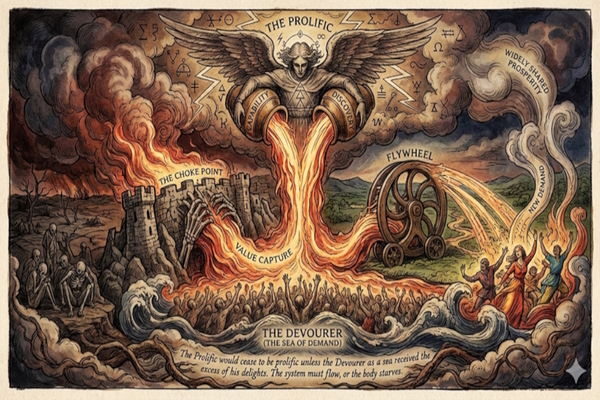Intelligent contract management
C-Suite leaders lose 21 days a year to contracts. Sudarshan Chitre at Icertis argues that AI could win them back

Contracts are the foundation of commerce – governing how revenue is captured, how risk is managed, and how relationships with suppliers, partners, and customers are structured. Yet every executive knows the frustration of watching strategic deals slow down because of redlines, revisions, or missed clauses. Contracts meant to enable strategic decision-making and drive growth often become a bottleneck.
According to a recent survey from Icertis, 40% of C-suite leaders spend more than 10 hours each week reviewing, approving, or negotiating contracts. That equates to 21 full working days annually – nearly a month of executive time lost to administrative oversight. The opportunity cost is substantial. Every hour spent caught up in clauses is an hour that is not focused on shaping growth strategies, closing key deals, or engaging customers, partners, and suppliers in an increasingly complex business environment.
The real cost of lost time
To put this into perspective, consider that the median compensation for S&P 500 CEOs was over £12.6 million in 2024. That breaks down to approximately £36,800 per day. Enterprises could be paying over £700 million annually just for CEOs to read and approve contracts. But the greater loss is not financial – it is the erosion of leadership’s capacity to think and act strategically. When executive attention is tied up in administrative oversight, opportunities slip, and leadership focus shifts from creating value to maintaining processes.
Executives must engage deeply with key contracts and commercial deals that shape the business. This could mean negotiating tariff passthrough clauses with sole suppliers in politically volatile regions. The opportunity lies in focusing attention where it truly matters. With AI-powered contract intelligence, leaders can quickly surface these high-impact contracts, understand embedded risks, and make more informed strategic decisions faster.
The persistence of paper
Despite widespread digital transformation across most business functions, contracting has remained one of the last manual holdouts. A surprising 40% of executives have signed a paper contract in the past year. More than half personally review or approve over 500 contracts annually, and nearly one in five handle more than 1,000.
These numbers reveal a process that is buckling under its own weight. The friction created by outdated contracting workflows and the absence of AI slows deal cycles, increases the risk of human error, and can delay everything from revenue recognition to supplier onboarding. Even minor oversights of these commercial agreements can have major financial or legal repercussions. AI agents that operate within the guardrails of the company policies and align with corporate strategy can help executives scale these evaluations. This balance enables leaders to focus on high-priority deals where leadership overview and decisions truly matter, while ensuring all other contracts are managed efficiently and in compliance.
Why executives are ready for AI agents
Across industries, leaders are waking up to the potential of automation to reclaim time and amplify executive impact. In fact, more than 80% of C-suite leaders are ready to adopt AI agents to help manage – and even negotiate – contracts. They see agents not as replacements for human judgment but as an extension of their intuition, guided by the latest cross-enterprise knowledge embedded in data and policies, and integrated with core systems.
AI agents can rapidly analyse contract language, flag risks, ensure compliance, and surface anomalies in minutes, delivering precision, consistency, and contextual understanding at scale while ensuring strategic governance remains firmly in executive hands.
As organisations compete on speed, trust, and transparency, intelligent contracting is emerging as a new source of competitive advantage and redefining what leadership time is worth in the age of AI.
Intelligent contracting as a strategic enabler
The use of AI to transform contracting into deep insights is a critical source of competitive advantage. By integrating contract data with core systems, enterprises can unlock rich pools of AI-powered insights to recapture revenue and maximise margins across the business.
For large enterprises, the real breakthrough is not automation – it is confidence that AI and agents can operate within clear guardrails. When actions are grounded in enterprise data, policies, and established playbooks, leaders gain assurance that automation scales responsibly and aligns with the intended outcomes of every agreement.
Unlike traditional tools that merely extract or summarise information, intelligent contracting interprets data in context – linking contract terms with operational, financial, and supplier data to surface deeper insights. This allows leaders to anticipate risk, analyse pricing terms in supplier agreements that diverge from market conditions, surface renewal cycles that impact cash flow, and act with greater precision on negotiation strategies.
The result is contracting that works at the speed of business: faster revenue recognition, reduced leakage, and stronger compliance oversight. And perhaps most importantly, executives regain the most valuable commodity of all – time for strategic decision-making.
A new chapter for the C-suite
AI-driven contract intelligence represents more than productivity gain – it is a shift from automating processes to orchestrating outcomes. When contracts evolve from static records of intent, they become dynamic instruments of strategy and trust.
Contracts will always be the backbone of commerce, but how they are managed is changing fast. AI offers not just an opportunity to accelerate work, but it defines a new path for leadership clarity and confidence through the powerful insights hidden in contracts.
Sudarshan Chitre is Senior Vice President of AI at Icertis
Main image courtesy of iStockPhoto.com and Volha Rahalskaya

Business Reporter Team
Most Viewed
Winston House, 3rd Floor, Units 306-309, 2-4 Dollis Park, London, N3 1HF
23-29 Hendon Lane, London, N3 1RT
020 8349 4363
© 2025, Lyonsdown Limited. Business Reporter® is a registered trademark of Lyonsdown Ltd. VAT registration number: 830519543





